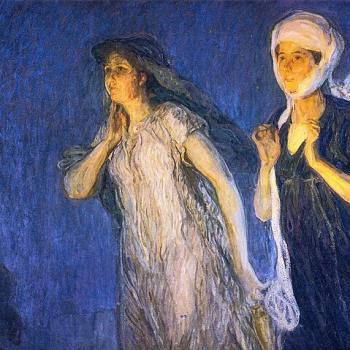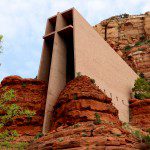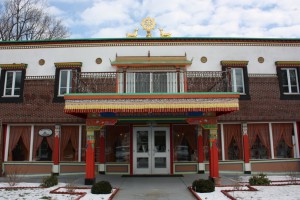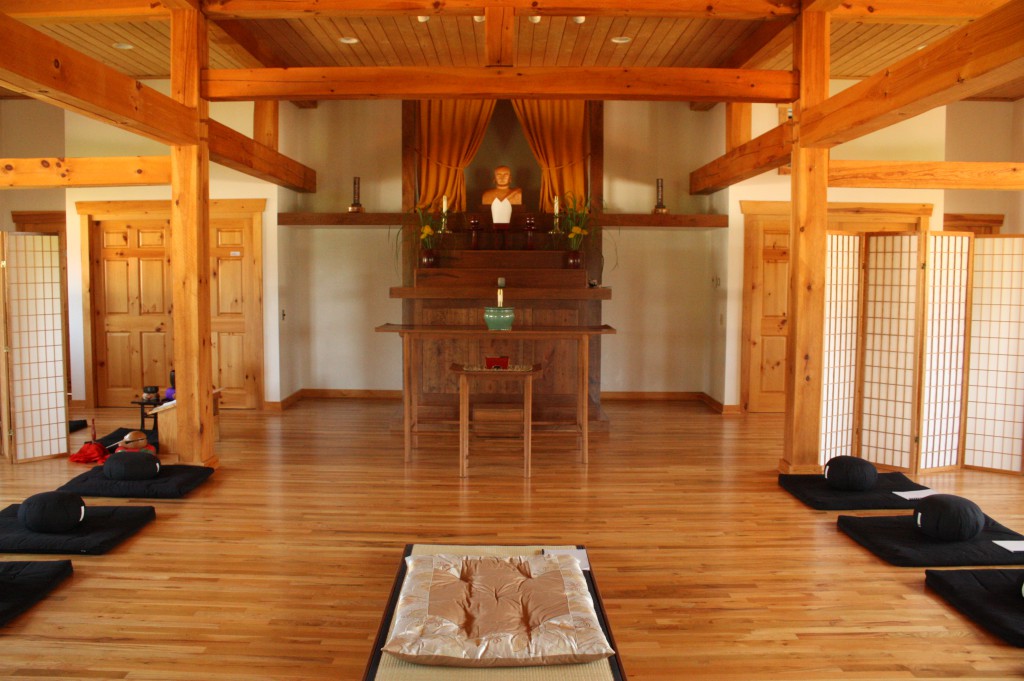
Today I want to tell you about Ryumonji, a Zen monastery near Decorah, Iowa. That probably sounds like a perfectly reasonable sentence to you, but to me it’s in the same category as “Today I want to tell you about an ice cream shop I discovered on Mars.” The reason for this is that I grew up on Decorah, a small town in northeast Iowa. While it was a lovely place to grow up, this was during an era when its religious diversity seemed to me to be limited to the occasional presence of a Swedish Lutheran in a Norwegian Lutheran congregation.
So you can imagine how surprised I was to learn that a Zen monastery and temple had opened in the countryside about 20 miles from Decorah. Last summer I finally had the chance to visit in person, and I came away impressed and a little astonished. Zen is not only sprouting in rural Iowa—it’s flourishing.
This serene enclave is presided over by Rev. Shoken Winecoff, its founding teacher and abbot. You know how there are some people you immediately like within two minutes of meeting them? Shoken is like that. He strikes me as someone who has done his spiritual homework, and I felt more peaceful simply being in his presence.
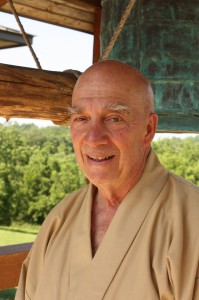
A former Roman Catholic priest and native of St. Louis, Shoken left the priesthood at the age of 28, became a psychologist, married and had a son. But as with so many people, his renewed commitment to a spiritual practice came as the result of hardship, in his case a painful divorce. “My divorce was my greatest teacher,” he says. “It was a very valuable lesson in giving up control.”
Shoken’s study of Zen Buddhism in Minneapolis led to him seek ordination as a monk, a path that included spending three years at a Japanese monastery. In 2000 he came to the wooded, rolling countryside of northeast Iowa to establish a Soto Zen Buddhist temple as a satellite of the Minnesota Zen Meditation Center. Forty acres of land near Decorah were donated for the temple, which is named Ryumonji, which in Japanese means “Dragon Gate Temple.” (Despite being named after a dragon, the temple’s first parishioners were actually cows, according to Shoken.)
Ryumonji’s first building was completed in 2004 and its fourth and final building was constructed in 2013. Its architecture follows the model of a traditional Buddhist temple and monastery, with two wings on either side of a central meditation space known as the Buddha Hall. A bell tower, another traditional part of Buddhist monasteries, contains a hand-cast bronze bell that peals across the wooded valley below.
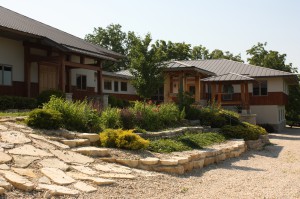
While Shoken is the one permanent resident of the monastery, a far-flung community claims it as a spiritual home. At any given time several people live on site, helping with maintenance chores as well as deepening their practice, and about two dozen gather regularly for meditation and ceremonies. (And I was happy to hear that its first parishioners are still present. When I was there, their mooing in the distance sounded remarkably contemplative—they’ve evidently picked up some of the vibe here.)
As with many monasteries, you have to do some searching to find Ryumonji, and I took several wrong turns on my way there. Such isolation is deliberate, according to Shoken. “There’s a long tradition in many spiritual traditions of going to remote places to grow inwardly,” he says. “In Buddhism this is called ‘going deep in the mountain.’ I like to think of Ryumonji as being deep in the mountains of northeast Iowa.”
In talking to Shoken, I was struck by the way he seems to blend the best of the two religious traditions that have shaped him. “Zen Buddhism has neither god nor no-god, soul nor no-soul,” he says. “It does not take any stand on such matters. And so I didn’t have to renounce Christianity in order to become a Buddhist.”
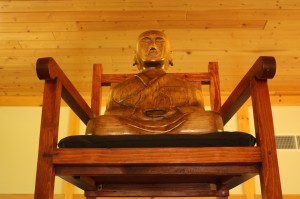
The deep peacefulness at Ryumonji felt familiar to me. Despite its Iowa setting, its atmosphere felt similar to what I’ve experienced at Zen monasteries in Japan and South Korea. How wonderful that Zen has flowed from the Far East into this corner of rural Iowa, adapting and changing in some ways but remaining true to its serene heart. I can’t think of any better summation of Ryumonji than these lines that are quoted on the monastery’s website from the 13th century Zen Master Eihei Dogen:
Catching the moon, cultivating the clouds,
Untouched by worldly dust fluttering about
A thatched hut, snowy evening, deep mountain.
Growing up in northeast Iowa, I never realized there were mountains there—but I could see them from Ryumonji.
Ryumonji offers weekend retreats and two-month stays for those seeking an extended practice. Public sittings are held Thursdays at 7:30 p.m. and Sundays at 9:00 a.m. For an orientation to zazen, arrive fifteen minutes early. For a visit outside of these times, please make advance arrangements to make certain someone is there to receive you. See Ryumonji for contact information.




